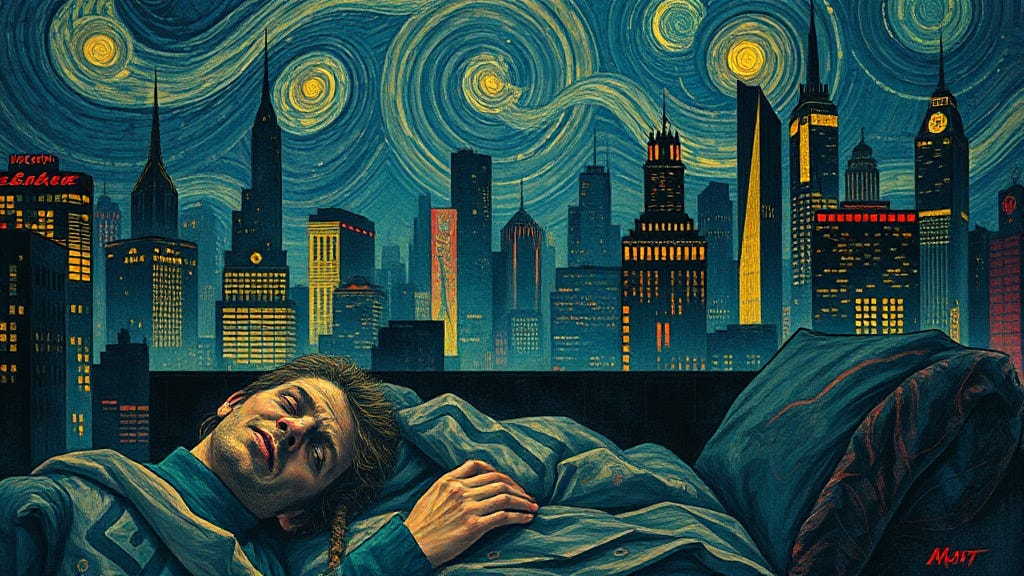Insomnia: Further Explanation and Insights into Sleeplessness
Continuing to step into the sleepless realm
Let's delve further into our previous discussion about a commonly asked question: What exactly is insomnia? Simply put, insomnia is the inability to fall asleep or stay asleep. However, it is important to understand the scientific and medical aspects surrounding this condition. Throughout history, various terms have been used to describe insomnia, such as "agrypnotic" and "agrupnos," which both mean being unable to sleep despite wanting to. For a thorough understanding of insomnia, you can refer to this article.
"https://en.wikipedia.org/wiki/Insomnia". Additionally, the DSM-IV-TR Diagnostic Criteria for Primary Insomnia provides a full definition and criteria for diagnosing insomnia.
Let's explore the scientific understanding of insomnia in more detail. Why is this knowledge so important? Because science plays a crucial role in treating and helping us comprehend and cope with insomnia. While it is not the only source of information, understanding, or treatment, its impact is significant.
In the 1980s, insomnia was primarily viewed as a symptom rather than an independent disorder. It was seen as a sign of other conditions such as depression or other mental and physical illnesses. Treatment often involved addressing the underlying condition, with the hope that resolving it would also alleviate the accompanying insomnia. In some cases, insomnia was dismissed as a minor issue or temporary sleep aids were prescribed. Chronic insomnia was believed to occur only as part of another psychological or physical ailment.
This perspective may explain why, in the past, when discussing insomnia or hearing others talk about their sleep troubles, it was common for people to link it to stress or depression. This perception likely originated from doctors, psychologists, and scientists and spread to society through media outlets.
Starting around 2005, there was a noticeable shift in the scientific community's perception and understanding of insomnia. It was no longer seen as just a symptom but was recognized as its own disorder. This change was necessary because even though it often coexisted with other disorders or illnesses, chronic insomnia deserved independent treatment. It became clear that insomnia should not be dismissed as simply a side effect of another issue.
This reclassification brought relief to those who had been suffering from insomnia for years and were constantly being told that there must be an underlying problem causing it. Many of us have thought, "I don't feel depressed or sick, but something must be wrong if I can't sleep." As insomniacs, we are all too familiar with the inner monologue of "Why can't I sleep?" or "I hope I can get some rest tonight," which only adds to the cycle of sleepless nights.
Since 2005, the focus of treatment has been on addressing both insomnia and its underlying illnesses or disorders. Surprisingly, treating insomnia has had a positive impact on managing the overall condition. In 2014, specific criteria were established in the DSM-IV-TR for diagnosing insomnia. These criteria highlight the key complaint of difficulty initiating or maintaining sleep, or nonrestorative sleep for at least one month.
These criteria are crucial because they validate insomnia as a legitimate disorder, ensuring that it is taken seriously by medical professionals who can then provide appropriate treatment. They also allow individuals to move past self-pity and misery and instead approach insomnia as a manageable part of their lives. At InsomniaChat.com, we believe that accepting insomnia is essential. Changing from suffering from insomnia to living with it requires a shift in mindset.
But do definitions help us really understand or to live and deal with our insomnia? I think not, and that’s what I hope to explore in writing this substack.
At InsomniaChat.com, I strive to give accurate information, insights, and support to help individuals lead fulfilling lives despite struggling with insomnia. Join our community today to connect with others who share similar experiences and discover coping strategies that work. Sign up for our free social network, blogging site, and forum to share your story and
Finally, if you need support and would like a place to talk to other insomniacs, please check out my insomnia chat Facebook group. At the time of writing, it has over two thousand members and growing. People post within the group or use the chats provided to share their experiences and give each other support.
You can find it here: Insomnia Chat Facebook Group





